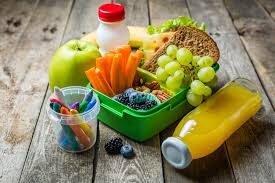Nutrition for Children: A Comprehensive Guide
Good nutrition for children is essential for overall growth and development of health and immunity. regular Eating a healthy diet can help children to:
- Reach their full growth potential
- Maintain a healthy weight
- Develop strong bones and teeth
- Boost their immune system
- Reduce their risk of chronic diseases, such as heart disease, stroke, and type 2 diabetes
What nutrients do children need?
Children need a variety of nutrients to grow and develop properly. These nutrients include:
- Carbohydrates: Carbohydrates are the body’s main source of energy. Children need carbohydrates to fuel their activities and to grow and develop.
- Protein: Protein is essential for muscle growth and repair. Children need protein to build strong muscles and bones.
- Fat: Fat is a source of energy and also plays a role in hormone production and cell function. Children need some fat in their diet, but it is important to choose healthy fats, such as those found in avocados, nuts, seeds, and olive oil.
- Vitamins and minerals: Vitamins and minerals are essential for overall health and well-being. Children need to make sure that they are getting enough of all the essential vitamins and minerals in their diet.
Foods to include in a child’s diet:
A healthy diet for children should include a variety of foods from all food groups. Some good foods to include in a child’s diet include:
- Fruits and vegetables: Fruits and vegetables are packed with vitamins, minerals, and antioxidants. Children should eat at least 5 servings of fruits and vegetables each day.
- Whole grains: Whole grains are a good source of carbohydrates, fiber, and vitamins and minerals. Children should eat whole grains, such as brown rice, oats, and quinoa, instead of refined grains, such as white bread and pasta.
- Lean protein: Lean protein sources, such as chicken, fish, beans, and lentils, are important for muscle growth and repair. Children should eat lean protein at every meal.
- Healthy fats: Healthy fats, such as those found in avocados, nuts, seeds, and olive oil, are important for cell function and hormone production. Children should eat healthy fats at every meal.
Foods to limit in a child’s diet
Some foods that children should limit include:
- Sugary drinks: Sugary drinks, such as soda, juice, and sports drinks, are high in calories and sugar and have little nutritional value. Children should drink water or unsweetened milk instead of sugary drinks.
- Processed foods: Processed foods are often high in calories, unhealthy fats, sugar, and sodium. Children should eat fresh, whole foods instead of processed foods.
- Fast food: Fast food is often high in calories, unhealthy fats, sugar, and sodium. Children should eat fast food only occasionally.
Tips for feeding children a healthy diet:
Here are some tips for feeding children a healthy diet:
- Set a good example: Children are more likely to eat healthy foods if they see their parents and caregivers eating healthy foods.
- Make healthy foods available: Keep healthy snacks and meals on hand so that children can easily reach for them.
- Limit unhealthy foods: Keep unhealthy foods out of the house or limit them to special occasions.
- Make mealtimes fun: Mealtimes should be a time for family and friends to come together and enjoy each other’s company. Avoid using mealtimes as a time to discipline children.
- Don’t force children to eat: If a child doesn’t want to eat something, don’t force them. Offer them a healthy alternative and try again later.
Additional tips for feeding children:
- Picky eaters: If your child is a picky eater, try to offer them a variety of foods in different colors and textures. You can also try making mealtimes more fun by letting them help you prepare the food or by serving their food on fun plates.
- Allergies and food intolerances: If your child has any food allergies or intolerances, be sure to talk to their doctor or a registered dietitian about how to create a safe and healthy diet for them.
- Special dietary needs: If your child has any special dietary needs, such as if they are vegetarian or vegan, be sure to talk to their doctor or a registered dietitian about how to make sure they are getting all the nutrients they need.
Conclusion
Good nutrition for children is essential for kids’ health growth and immunity development. By following the tips above, parents and caregivers can help children to develop healthy eating habits that will last a lifetime.
We hope you like above article on nutrition for children
Thanks for visiting Gymbag4u.com
You may also love reading following articles along with above nutrition for children and other kids health related information. pediatric care for children’s: parents’ guide – GymBag4U and Nutrition – Age-Wise Body Nutrition Tips – GymBag4U and Childhood asthma : Expectation vs Reality – GymBag4U
